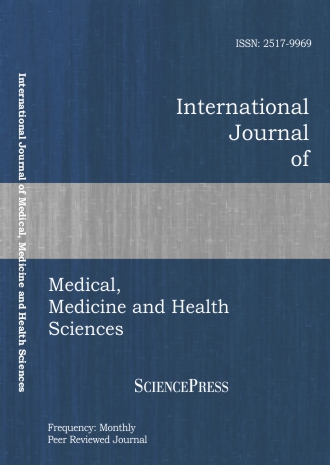
Scholarly
Volume:6, Issue: 1, 2012 Page No: 4 - 8
International Journal of Medical, Medicine and Health Sciences
ISSN: 2517-9969
1468 Downloads
Development of the Algorithm for Detecting Falls during Daily Activity using 2 Tri-Axial Accelerometers
Falls are the primary cause of accidents in people over the age of 65, and frequently lead to serious injuries. Since the early detection of falls is an important step to alert and protect the aging population, a variety of research on detecting falls was carried out including the use of accelerators, gyroscopes and tilt sensors. In exiting studies, falls were detected using an accelerometer with errors. In this study, the proposed method for detecting falls was to use two accelerometers to reject wrong falls detection. As falls are accompanied by the acceleration of gravity and rotational motion, the falls in this study were detected by using the z-axial acceleration differences between two sites. The falls were detected by calculating the difference between the analyses of accelerometers placed on two different positions on the chest of the subject. The parameters of the maximum difference of accelerations (diff_Z) and the integration of accelerations in a defined region (Sum_diff_Z) were used to form the fall detection algorithm. The falls and the activities of daily living (ADL) could be distinguished by using the proposed parameters without errors in spite of the impact and the change in the positions of the accelerometers. By comparing each of the axial accelerations, the directions of falls and the condition of the subject afterwards could be determined.In this study, by using two accelerometers without errors attached to two sites to detect falls, the usefulness of the proposed fall detection algorithm parameters, diff_Z and Sum_diff_Z, were confirmed.
Keywords:
References:
[1] Bijan Najafi, Kamiar Aminian, Anisiara Paraschiv-Ionescu, Francois